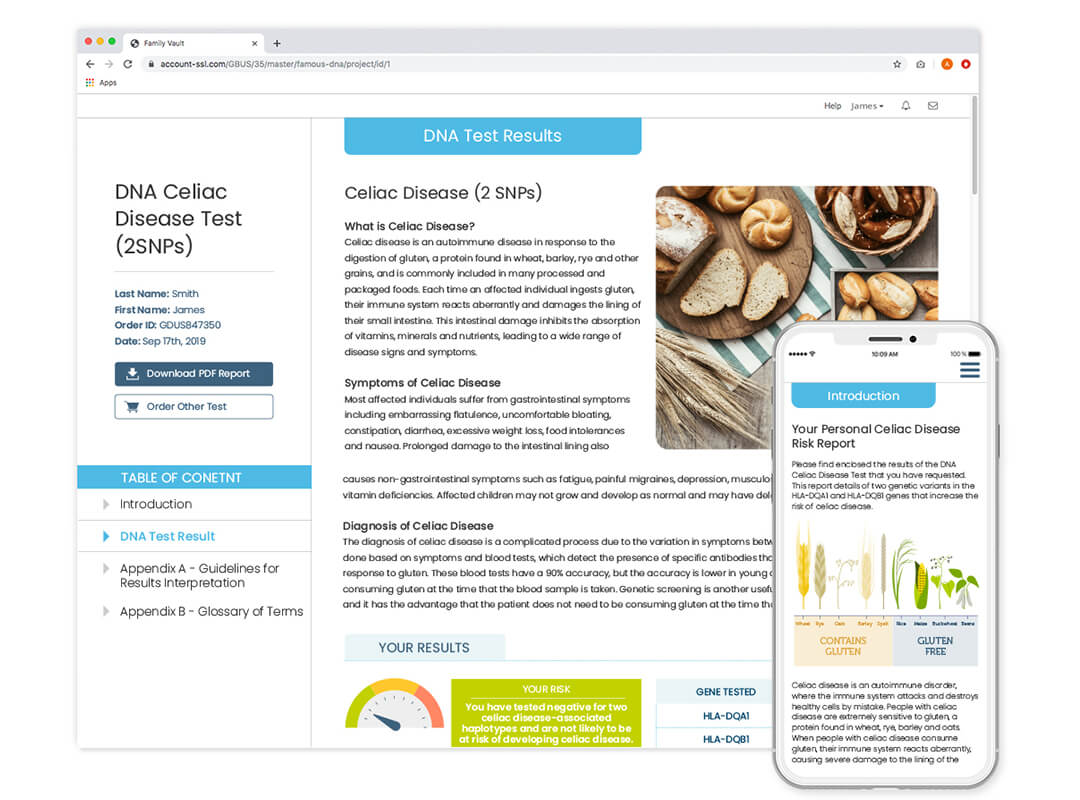Celiac Disease (2 SNP) DNA Test
Almost all people with celiac disease carry at least one genetic risk allele. Find out your risk.
- This is a SNP test for two HLA variants associated with an increased risk of celiac disease
- Detect the celiac disease-associated HLA haplotypes (HLA-DQ2.5 and HLA-DQ8)
- Are you at increased risk of celiac disease?
Already have DNA markers? Sign in and upload your data to view results.
Need to take the DNA Test? Order our easy-to-use swab kit.





